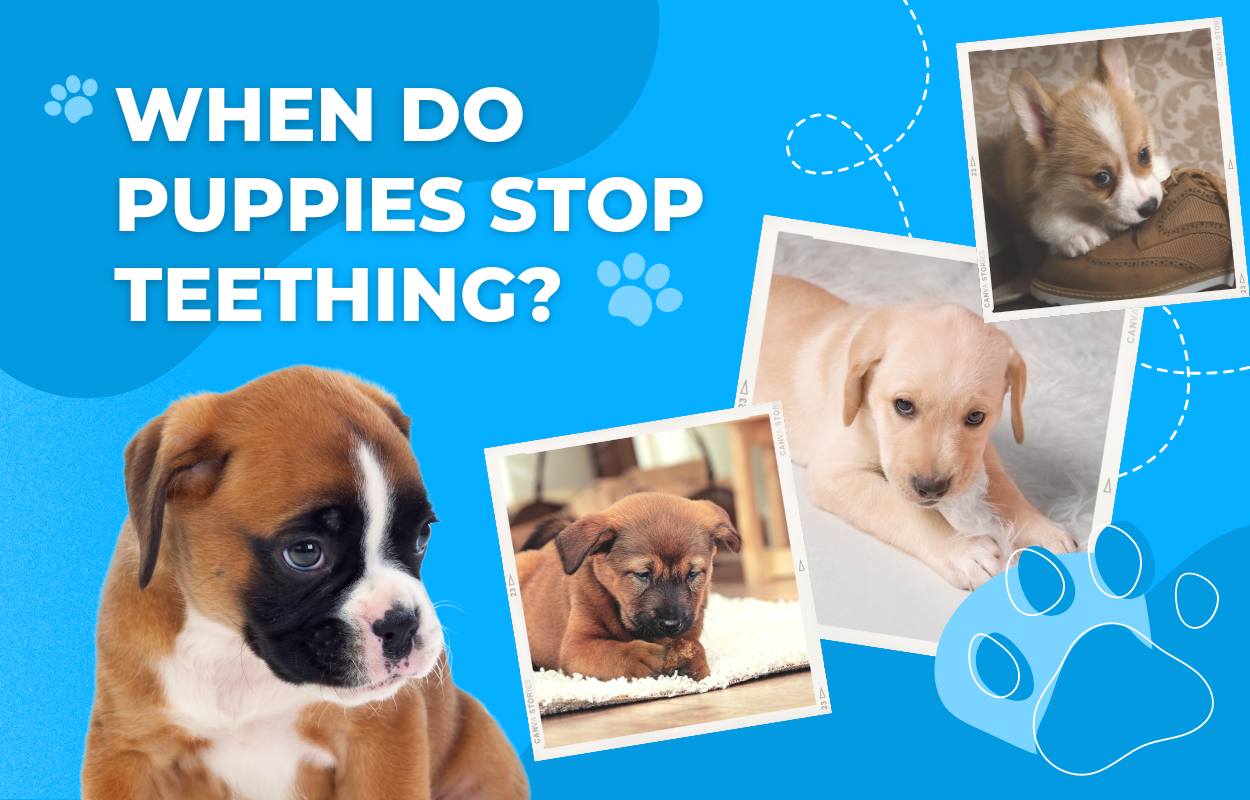
When Do Puppies Stop Teething?
February 10, 2023Like human babies, puppies go through a teething stage. It is a natural process where they lose their baby teeth and grow adult teeth. However, it can be a frustrating time for both puppies and their owners as they may experience some discomfort and side effects.
When Do Puppies Stop Teething?
Puppies start teething around 3 to 4 weeks of age and typically finish approximately 6 to 7 months of age. However, this can vary depending on the breed and size of the puppy. Large breeds may take longer to finish teething, while smaller breeds may finish earlier.
Side Effects Of Teething In Puppies

Puppies will often chew on anything they can get their paws on during this time. This can include furniture, shoes, and even household items.

Teething can cause increased drooling in puppies.

Puppies may also experience discomfort and irritability during this time.

Some puppies may lose their appetite due to discomfort.

As the new teeth push through the gums, puppies may become nippier and bite more.

How Old Are Puppies When They Get Their Permanent Teeth?
Puppies start to get their permanent teeth at around 3 to 4 months, but the process can take several months to complete. The first permanent teeth to come in are typically the incisors, followed by the canines and premolars. The last teeth to come in are the molars, which typically arrive around 6 to 7 months of age.
It's important to note that the timing of this process can vary depending on the breed and size of the puppy. Large breeds may take longer to finish teething, while smaller breeds may finish earlier.
It's also important to note that even after the puppy has all of their permanent teeth, it may continue to chew and be mouthy; this is because the adult teeth will take some time to settle, and the jaw will finish growing; this is normal and should not be mistaken as teething.
It is important to keep a close eye on your puppy's dental health as they grow and make sure to provide them with appropriate chew toys and visit your veterinarian for regular check-ups and dental cleanings as needed.
How To Help Your Puppy Through Teething

Give your puppy toys that are safe to chew on. This will help alleviate some discomforts and redirect their chewing behavior.

A frozen washcloth can relieve sore gums.

If your puppy is not eating as well as usual, try different food types to find something they like.

Training and socializing your puppy during this time will help to redirect their energy and focus away from their discomfort.
Salmon Oil for Puppies
Salmon oil is a good source of omega-3 fatty acids, which are essential for puppies' growth and development. Salmon oil can also provide specific benefits for puppies, such as:
- Improved vision: Omega-3 fatty acids are essential for eye health, and can help to improve vision in dogs with age-related macular degeneration or other eye problems.
- Reduced anxiety: Omega-3 fatty acids have been shown to have calming effects, which can help to reduce anxiety in dogs. This can be especially helpful for puppies who are going through a lot of changes, such as when they are first brought home from the breeder or when they are introduced to a new home or new family members.
- Increased energy: Omega-3 fatty acids can help to increase energy levels, which can be helpful for puppies who are active and playful.
Here are some of the things to keep in mind when giving salmon oil to puppies:
- Start with a small dose and increase it gradually over time.
- Look for a high-quality salmon oil that is free of contaminants.
- Store salmon oil in a cool, dark place.
- If your puppy has any health concerns, talk to your veterinarian before giving them salmon oil.
It's important to note that teething is a normal process and not a cause for concern. However, if your puppy is experiencing severe discomfort or other unusual symptoms, it's best to consult your veterinarian. With the proper care and attention, your puppy will be through the teething phase before you know it, and you'll have a happy, healthy adult dog.
